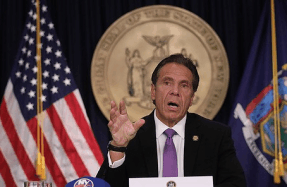A Scratch Card in Every Pot

Stockton, California, announced last week that it will try out a new anti-poverty program that provides $500 per month for a small subset of eligible residents. Earlier this month, the province of Ontario mailed its first monthly checks to 400 lucky Canadians. Advocates for a “universal basic income” (UBI) call these programs “experiments,” or “pilots,” and they hope that positive results will build support for their proposals. But these governments are not testing a UBI; they are running a free lottery. No one should be impressed or persuaded if its winners prove to be fans.
The UBI is a difficult proposal to promote. In the United States, the idea is to give every American a monthly stipend sufficient to live on—perhaps $1,000 per month. This would cost trillions of dollars each year, necessitating unprecedented tax increases on not only the wealthy but also the middle class. The end result, relieving individuals of the obligation to support themselves or their families, runs afoul of millennia of accumulated wisdom about human nature, and is antithetical to core tenets of American culture. How to sell such a scheme?
With “evidence-based policymaking,” that’s how. UBI advocates are designing small-scale programs that would purportedly demonstrate the positive social effects of simply mailing people checks. Stockton’s initiative, for instance, is being bankrolled by a group called the “Economic Security Project,” to generate not only “critical data on the impact of cash,” but also to “tell the stories (good, bad, and everything in between) about the experience of individuals and communities when they receive a guaranteed income. As students of successful social change efforts throughout history, we know it’ll take both — the data and stories from those most affected — to move a guaranteed income forward.”
But an experiment can answer questions only about what it tests. In these limited-UBI experiments, the parameters include the random selection of recipients with no prior expectation of receiving payments, and a clear, short duration for those payments. In effect, someone receives a letter announcing: “Congratulations, you will receive a sum of money paid in 24 monthly installments, in return for which you must fill out several surveys so that we can learn how the payments affect you.”
We have a term for programs in which someone fills out surveys and in return becomes eligible for a cash prize, sometimes paid in installments. The term is not “basic income”; it’s “promotional contest.” When the government runs the program, we usually charge a fee to participate and call it the lottery.
Research shows mixed results on the effects of winning lotteries, so maybe Stockton can make a contribution to this field. Winning might prove beneficial to low-income residents, especially if they don’t spend money to participate, and if the payouts are modest enough to ensure a financial boost without disrupting recipients’ lives or tempting them to indulge wild fantasies.
Treating this program as a useful test of the UBI, however, is a marketing gimmick that borders on fraud. The experiments ignore the UBI’s disquieting aspects. It’s generally accepted that people in need should receive short-term support. But limited, means-tested government support is not the same thing as rearranging cultural expectations and economic incentives by making self-reliance optional, which would devalue work, weaken families and communities, discourage young people from launching their adult lives, and subsidize an expanding and idle underclass.
UBI experiments similarly ignore the cost side of the equation. Handing out money is easy when the financing comes from a foundation, but testing the benefits of spending money without reference to the costs of collecting it makes no more sense than doing the reverse. Should Stockton select a group of residents, raise their taxes by the amount necessary to fund a UBI, and set the funds on fire? That would be at least as accurate a representation of what the UBI entails. As it is, “the stories (good, bad, and everything in between) about the experience of individuals and communities when they [pay for] a guaranteed income” might not be what the sponsors are looking for.






